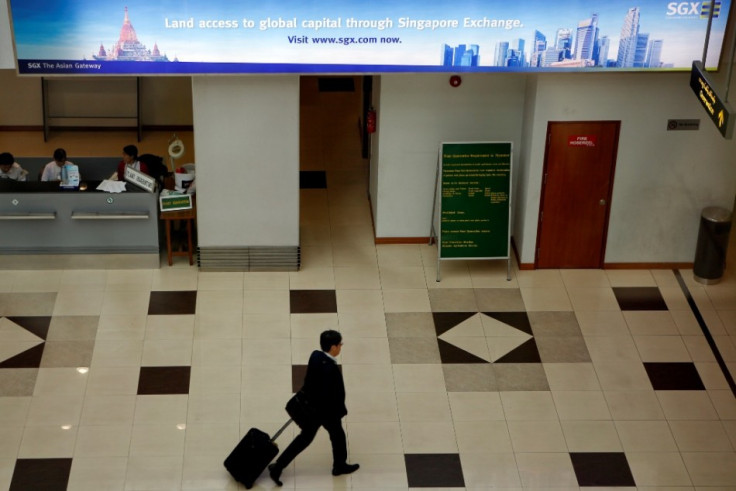Cash Starved Myanmar Firms Eye Singapore Listings With Caution

Some of Myanmar's biggest companies, struggling to raise growth-funds in the country's cash-strapped market, are eyeing a flotation in Singapore.
About 10 companies could list in Singapore over the next few years. However, these capital-hungry firms will have to dodge several obstacles as the attempt to do so.
The Singapore Stock Exchange (SGX) demands high corporate governance standards, which companies in Myanmar could find hard to meet, say lawyers and bankers who work with Myanmar firms.
That issue gets even more complicated because several Myanmar businessmen figure on a US sanction list. They allegedly profited by joining forces with the former military junta, which was infamous for corruption and human rights abuses. The European Union ended sanctions earlier in the year, but the US has only just suspended them.
In addition, any move to list offshore could anger the government, which has sought help from Japan's Daiwa Securities Group to establish a local stock exchange by 2015.
A senior executive at a resources firm told Reuters that authorities had covertly asked several firms not to list abroad.
However, Aung Naing Oo, director general of the Directorate of Investment and Company Administration, part of the Ministry of National Planning and Economic Development, denied the government issued such warnings.
Capital Drought
City Mart Holding, which operates Myanmar's largest supermarket chain, is eyeing a Singapore listing, but is also considering other options, a company spokeswoman told Reuters.
Mongolia-based Silk Road Finance proposes to list its advisory services arm Mandalay Capital in Singapore within three years, chairman Alisher Ali said.
Aung Zaw Naing, managing director of construction and hydropower conglomerate Shwe Taung Group of Companies, said his company's plan "depends on the situation of the stock market that will emerge [in Myanmar] soon."
"To this day in Myanmar, there's no stock market, no bond market, no banking market to talk about. There are quite a few companies that are asset-rich but have no source of liquidity," said Andrew Rickards, CEO of property giant Yoma, listed on the SGX since 2006 through a reverse takeover,
"If it was smart to do an RTO (reverse takeover) in 2006 for Yoma, it's absolutely necessary now for companies to have access to international markets."
However, not everybody shares Rickards' enthusiasm.
In April, the Singapore bourse rejected businessman U Zaw Zaw's proposed reverse buyout deal.
Zaw's petrol retailing business was being acquired by bed linen retailer Aussino Group. However, SGX rejected the reverse takeover because Zaw's name figures on the US sanction list.
Corporate Landscape
20 large conglomerates operate in Myanmar.
The country's fledgling over-the-counter bourse, the Myanmar Securities Exchange Centre (MSEC), has only two listed firms. Stock trading is rare and payments are typically made in cash.
A few companies that have gone public sell shares from their offices or at public places. They tap potential investors through word-of-mouth and newspaper advertising.
© Copyright IBTimes 2025. All rights reserved.






















